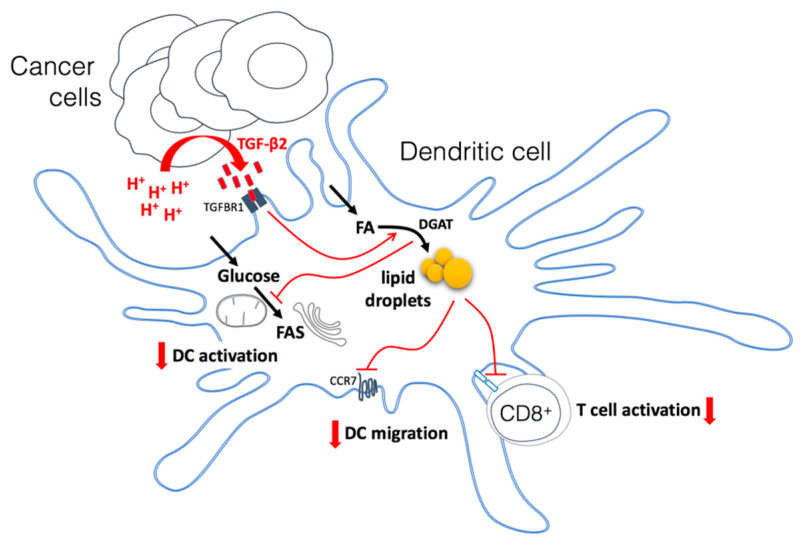Figure 7.
Model depicting how the acidic tumor microenvironment promotes TGF-β2 secretion by cancer cells which in turn leads to lipid droplet (LD) accumulation and profound metabolic rewiring in dendritic cells (DCs). DCs exposed to a TGF-β2-containing mesothelioma acidic milieu exhibit a net increase in the uptake of fatty acids that accumulate as triglycerides into LDs, as well as a dramatic reduction in glucose metabolism. The consequences are a deficit in both DC migratory potential and activation as well as a decrease in T cell activation. Inhibition of TGF-β2 signaling but also diacylglycerol O-acyltransferase (DGAT), the last enzyme involved in triglyceride synthesis, has the potential to restore DC activity and anticancer immune response. TGFBR1: TGF-beta type I receptor inhibitor; CCR7: C-C chemokine receptor type 7; FAS: fatty acid synthesis.

